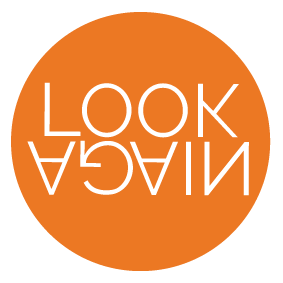Streaming to the Sea
Maja Zeco + Luca Nascuiti
Streaming to the Sea is an online residency that will inspire the public to explore their local environments through storytelling, walking and listening. The artists aim to open up new ways of working with the audience, as contributors to their project, through creative engagement with social media.
The conversation with the online community will explore how we relate to rivers and seas in every day life. Maja and Luca will begin their exploration from their locations, respectively Aberdeen and London, and they will develop their work on memories and stories from many other rivers and coasts, in the month ahead.
Reflection at the end of the Digital Residency
// Maja Zeco & Luca Nascuiti //
Streaming to sea turned into a journey for us both.
We initially designed a project to be exhibited in a physical space. This was a journey that we would have taken together, sharing physical space and engaging with the local community of the city of Aberdeen.
The pandemic demanded a different approach. It separated us and urged us to try and think creatively of ways in which we could work together, talk, share ideas, develop new work.
We moved organically in a direction that made us think about ways in which we could spark conversations with different people across different geographies. The river became during the residency the common denominator we’ve used to talk about and reflect upon the way we live today, how our past carves our present and how we can use these to think about the future.
We talked about our memories of the past. We talked about our concern for environmental sustainability, we talked about our new life under lockdown. We tried to pay more attention to our surroundings through all our senses. We shared our emotions triggered by the sound of water.
The waves of the sea, the streams and burns and river flowing out to sea are sounds that accompany our lives and magnify our other senses.
Rivers are a visual and sonic constant in our everyday life. We live by them, we cross rivers when commuting to and from work. We travel along and across, walk alongside them, look at them, feel their surroundings, breathe and smell the air around them. We take comfort from them, we feel scared and overwhelmed by them. Rivers are a place of rest as much as of conflict.
They are part of our past memories and the river experience of the present triggers reactions embedded in our past.
How far back can we go in our memories?
Can we get to a point where our memories weave into those of other people? People we know from our past, people we read about in books, saw in films, find online.
The transformation of a river is as much determined by the elements as it is by our past. The river I’m looking at today has been carved by civilisations and water; a relationship fluctuating between need, want, dependence, arrogance, domination, comfort.
A river gives us a sense of direction and time. The water flows to the estuary and the tides remind us of the sea and the vast water expanse that divides lands but at the same time creates opportunities for connections. The flowing of rivers reminds us of the distance between places. I can follow the river up or downstream and I find myself to be projected in time and space. I know my endpoint is in the future time as much as a future place.
The territories traversed and connected by water tell us who we are and show us where we come from and where we are heading to.
We are grateful to many of you who followed, supported and responded to our residency. We will continue working on this project, reflecting on the conversations we had with people of different walks of life.
In the words of Jon Blackwood, our contributor:
The experience of engaging with this online residency and taking part in the sound walk has encouraged me personally to listen much more in the presence of rivers and the creatures that live there. In these times of permanent crises, of algorithmic echo-chamber shouting, pandemics and looming ecocide, this need to listen, carefully, has never been a more urgent task.
His reflection essay on this project is available to download here.















